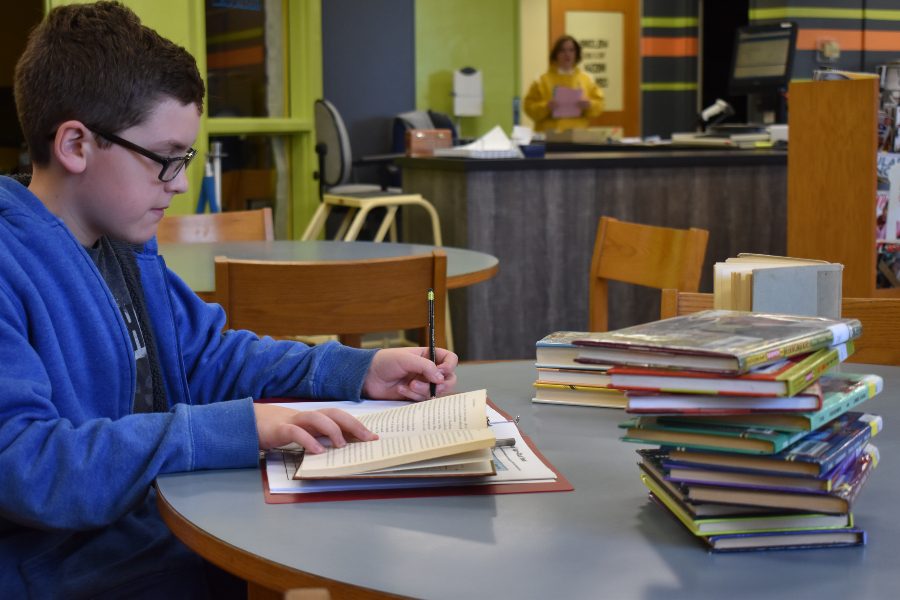Mastering High School: How To Study
Freshman Jeremy Brown hunkers down for a studying session in the media center.
November 7, 2018
Studying- the process of falling asleep when attempting to remember boring stuff. Studying is hard and often takes up time we do not have. So, How can we study more productively?
One: Study before bed. Studies show that if you read something complicated before bed, your brain is still processing the information without effort on your part. All you have to do is read a scene from Shakespeare’s Romeo and Juliet to improve your English grade and to improve the rate of which you fall asleep.
Two: Study in chunks. Cramming information in your brain right before the test is not guaranteed to give you a good grade or help you remember the content next year. It is better to study a section a night and add more information as test day approaches. For example, do not try to understand how the Roman empire fell five minutes before the test.
Three: Study what you know will be on the test. Vocabulary words, names, and topics you spent days learning about will most likely be on the test. Therefore, make sure that you get those easy points, and study the stuff that may not appear as frequently if you have time. This works especially well in foreign language classes like French and Spanish. Adios!
Four: Try making connections to what you are studying. Maybe the vocabulary word reminds you of something else. Remembering the connection can make it easier to remember. I always use this strategy to remember the names of places in my World Cultures class with Mr. Christine.
Five: Take a study break! No, not every two minutes. Before you study, break your study guide into sections and study until you have mastered a section then take a five minute break. Afterwards, review that section and continue to the next section. This is nice for Mr. Goodman’s Earth Science class, where most of what you study will be neatly organized in a notebook.
Six: Sleeping and being in a happy, healthy mood can help you pass a test. So, do not stay up all night studying the night before the test. This will really damage your grade if you have a test in Mrs. Frank’s math class where all test are timed.
Seven: Rewarding yourself is a way to make you want to study. Set a goal and once you reach that goal, reward yourself. I find this useful when I don’t want to study another page in Mr. McNaul’s study guide.
Eight: If you are one with your phone, and your phone is one with you, then make sure to get rid of all distractions before you study so that you will remain focused. I hope you got my Star Wars joke. 😉
Nine: On the other hand, using technology to study can be helpful, especially if your phone is already glued to your hand. Some teachers, like Ms. Shimel, post quizlets on Google Classroom to help you study.
Ten: Writing over and over again is helpful. Sort of like in spelling when the teacher makes you write each word 5 times each. This is really helpful for any complicated word you need to know how to spell. This works well for classes like Spanish or French when you’re learning to spell words like feliz cumpleaños.
Discovering new ways to learn can help you find the studying method that works best for you. Try to do as many tips and tricks as you can to make studying more productive.






